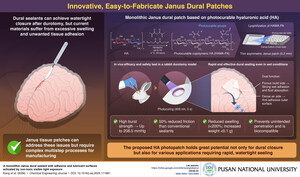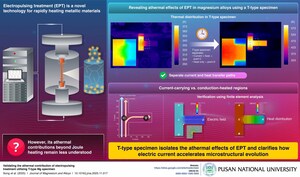
Research from Pusan National University Yields Evapotranspiration-Based Drought Predictor
Novel evapotranspiration model suggests rise in atmospheric dryness can increase the severity of droughts, wildfires, and agricultural risks
BUSAN, South Korea, Sept. 7, 2021 /PRNewswire/ -- Water shortages can adversely affect the existence of all living forms. However, as never-ending human activities continue to threaten our climate, we are likely to face several calamities in the near future. Such drastic climatic disturbances can have a major impact on the agricultural sector and economy, underscoring the need for accurate climate prediction models.
Conventionally, climate scientists have relied on soil moisture and precipitation measurements to predict droughts. However, increasing evidence supports the role of atmospheric water vapor deficit as a crucial determinant of the water status of an ecosystem. This is measured in terms of "evapotranspiration" (ET), that accounts for the water lost to the atmosphere through evaporation from the soil surface and transpiration from plant surfaces. An objective quantification of ET, however, remains a mystery.
To resolve this problem, researchers from Pusan National University, South Korea have developed a drought prediction model based on the ET deficit, which is the difference between water vapor consumption and demand (ET-Ep). Professor Kyung-Ja-Ha, corresponding author of their article published in Earth's Future, states, "The stress of atmospheric dryness could amplify potential impacts of water deficiency in plants. This can significantly decrease vegetation productivity, leading to crop price volatility and threatening food security."
The researchers used an integrative complementary relationship approach that enables combined assessment of water deficit stress and water demand by considering land-atmosphere interactions. Their study area included the East Asian region.
Using this model, they could successfully validate ET estimates that were highly consistent with archived reference data on past droughts from as far back as 1980. They also estimated projections for future droughts up to the end of the 21st century. The study takes into consideration the impact of rising carbon dioxide-induced warming on water level stress. This provides a more accurate prediction: one that accounts for the changing climate dynamics.
Their findings reflect a persistent and rising trend of Ep, suggesting that water demand is bound to surpass plant water consumption in the near future. This increase in atmospheric dryness can negatively impact agricultural yields and trigger wildfires that pose a major threat to life.
"Atmospheric water vapour stress combined with soil water stress could significantly amplify drought severity compared to predictions based solely on soil moisture and precipitation. Our model highlights atmospheric dryness as an independent risk variable for future droughts," surmises Prof. Ha.
Knowing is half the battle, and the team's highly accurate future drought predictions will help humanity be better prepared for the worsening climate crisis.
Reference
Authors: Daeha Kim, Kyung-Ja Ha, and Ji-Hye Yeo
Title of original paper: New drought projections over East Asia using evapotranspiration deficits from the CMIP6 warming scenarios
Journal: Earth's Future
DOI: https://doi.org/10.1029/2020EF001697
Corresponding author's email: [email protected]
Lab page: http://gmcl.pusan.ac.kr
Link to the original news story: https://www.pusan.ac.kr/eng/CMS/Board/Board.do?mCode=MN104&&mode=view&board_seq=1468740&
About Pusan National University
Website: https://www.pusan.ac.kr/eng/Main.do
About the authors
The first author of the study, Prof. Daeha Kim, is an Assistant Professor in the Department of Civil Engineering. His research interests include evaluating climatic risks in agricultural and water sectors and formulating adaptive strategies for risk reduction.
The corresponding author, Prof. Kyung-Ja Ha, is an expert in climatic extreme and monsoon hydrology, and had worked with Prof. Kim from 2019 when he was affiliated with the APEC Climate Center.
Prof. Ha and Prof. Kim have participated in international research projects for WMO/WWRP and for water resource management and climate predictions, respectively.
Prof. Ha: https://prcid.org/0000-0003-1753-9304
Prof. Kim: https://orcid.org/0000-0001-8478-1278
Contact:
Na-hyun Lee
+82 51 510-7928
[email protected]
SOURCE Pusan National University








Share this article